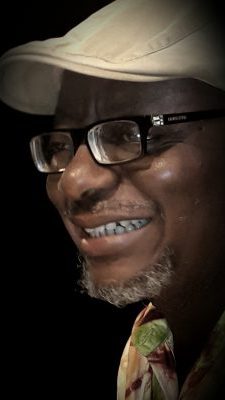I adore book-to-film adaptations when they’re done well… For me, the most important thing is that the film maintains the spirit of the original book – Maggie Stiefvater
I can still vividly recollect that year. It was 1975 and I was just a Form 1 student in secondary school. The black cover of the book published by Penguin Books Limited, England with the iconic picture of Wole Soyinka with his trademark Afro hairstyle and beard; they were all black then not the golden white that they have today turned to.
My older brother held a copy of the book with the bold title THE MAN DIED, prison notes of WOLE SOYINKA. I have heard so much about the man’s exploits but had never read any of his works then because we were told his books were too hard a nut for us to crack and that the language were beyond our comprehension as secondary school boys. I never bothered myself to find out if it was true. But I admired the cover of the book and the title. Years later after been introduced to his Jero Plays, I went back to the book and read it.
As predicted, I never made much sense of the whole book as a secondary school student. All I knew was that it is a book about his detention during the three-year long Nigerian civil war which I was familiar with as a child. Many years later after getting more matured and with elevated mind and understanding I returned to the book to appreciate it better.
So, when the buzz was around the writer’s 90th birthday anniversary and there was the talk of the book been turned into a movie, I became curious and wondered who is the ‘crazy’ film director or producer that would be able to put that “monster” of a book on celluloid.
I am a sceptic when it comes to watching books that have been adapted to films! This is because I often come out feeling shortchanged that more often than not the film is an anti-climax of the book. It was perhaps with this at the back of my mind that I drove to the Eko Hotel venue of the screening of THE MAN DIED directed by Prof Awam Amkpa and produced by Femi Odugbemi on Saturday, October 5, 2024, at the recently concluded Quramo Festival of Words.
There is that insulting saying that if you want to hide something from a typical Nigerian, put it in a book. This is because it is believed, rightly or wrongly, that most Nigerians don’t read. Or maybe they read wrong things! Prof Soyinka has of recent been at the wrong end of the mouth and fingers of some Nigerians who have refused to engage and know the kind of a man he is. To be able to pronounce a verdict, you must understand. Many don’t.
I wished many of those who have been casting stones and baskets of insults all over the social media take a good pause and read the book or get the opportunity to watch what the trio of Prof Amkpa, Odugbemi and Bode Asiyanbi, as well as the cast and crew have done to simplify the book for them so that they can understand the man Soyinka. Unfortunately, a few others who also understand and have read his books have failed to appreciate his efforts because of the collective amnesia or the frenzy and population of the ignorant crowd on the social media. The Netizens need to watch and internalise this film to know more and have better understanding.
The Soyinka foray into the Biafran enclave when it was a dangerous thing to do and the meeting with the late Ojukwu and all efforts to draw the two forces (Federal and Biafra) away from the war failed and Nigerians still live with that tragedy today. It is unfortunate that the lessons of the civil war despite all the tons of books, reels of films, volumes of words and energies that have been expended to document them are still unlearnt.
It was also exciting to hear Wale Ojo who played the Soyinka role say that playing the lead role was a highlight of his professional life. He played the part so well, especially with his little resemblance of the younger version of the writer. The shooting of this film is really a very good thing to perhaps serve as a reintroduction of the eminent writer to a larger audience who have been frightened by his impressive body of works in the past; they can at least watch on celluloid. To the organisers of Quramo Festival and the hands that made the screening possible, it is kudos to them all, and as Odugbemi said during the Q and A after the screening, “Nigeria was closer to unity after the civil war than we are today.” The question is: why? Have we travelled this road for 64 years in vain without any lessons learnt?


